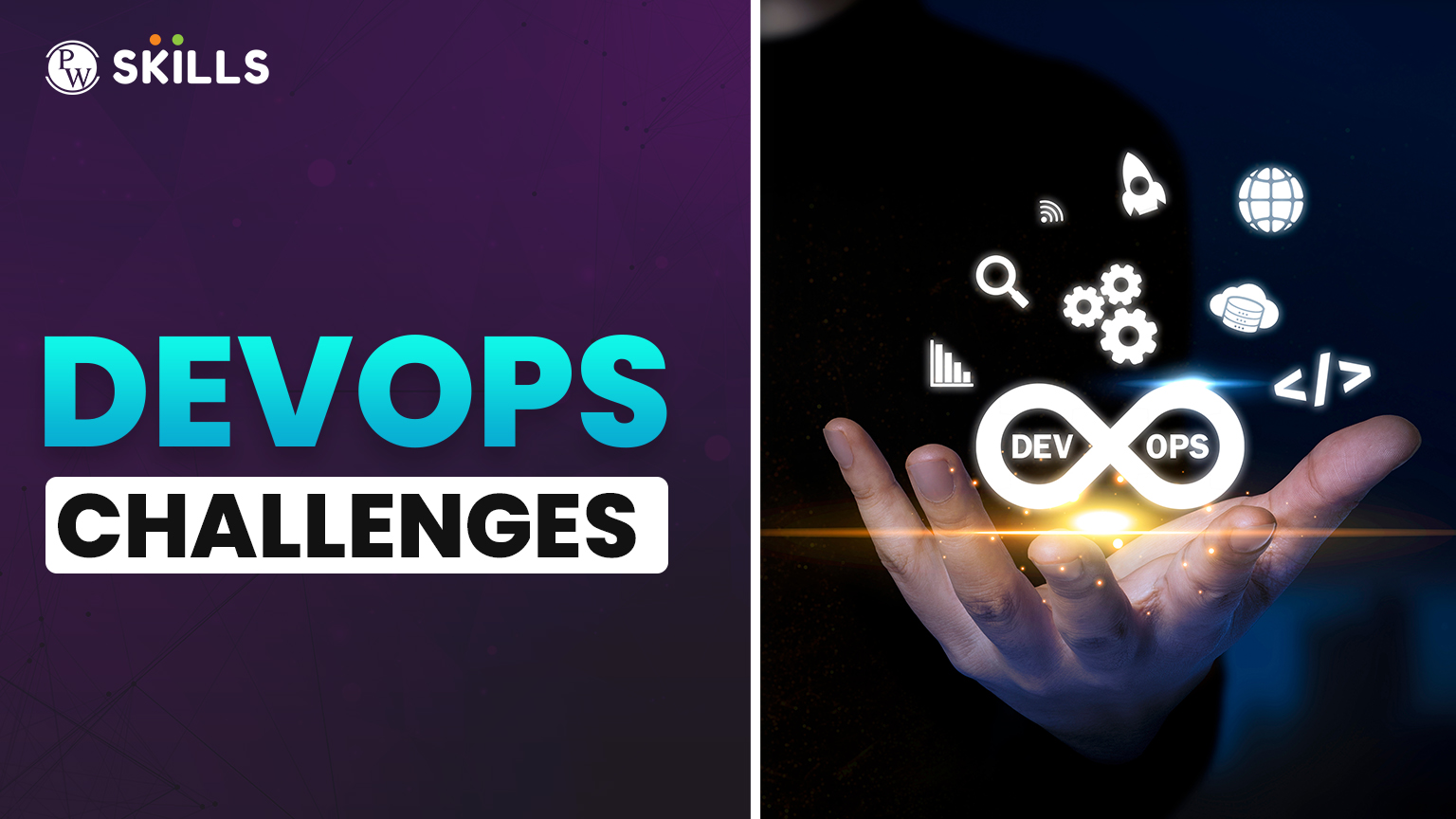DevOps really is the new railway system of modern software development, linking developers (who write code) and operations (who run code) on one track, thus speeding things up, smoothing things out, and making them more reliable. Like any railway, however, there are bumps, broken rails, and delays from time to time.
These obstacles are what we term as DevOps challenges-the predicaments facing teams, engineers, and organizations during the adoption or scaling of the DevOps practices. Understanding these issues is important, whether you are a curious student about the field, a working professional looking for paths for career growth, or a DevOps engineer already knee-deep into production pipelines.
This blog will open up the Top 10 DevOps challenges, stating why they are important, real-world scenarios, and how teams can defeat them. Along with the way we’ll sprinkle in answers to questions people always type into Google such as “What is the devops challenges thing that you’ve done as a DevOps engineer?” and “What tools we use in DevOps?”
So, let’s get started on the real story of devops challenges and its solutions.

- The Cultural Shift Challenges in DevOps
This is usually the first great challenge, but most of the time it is not technical-it is cultural.
There needs to be a dismantling of the silos between development, operations, QA, and sometimes even security teams. However, humans are creatures of habit. Developers tend to dislike doing operations tasks, while the ops team members are afraid of being replaced by automation; some management members do not quite believe in the DevOps mindset.
Sample Real-World Evidence
A fintech company implemented CI/CD pipelines to speed up their release cycle. Developers were ecstatic about it, whereas the operations team fought against it because they fear losing their production control. The resolution took workshops, meetings across teams, and finally support by leadership.
Pro Tip: Start small-creating cross-functional squads, celebrating quick wins, and showing how DevOps saves time for everyone.
- Tooling-DevOps Challenges
Ask any DevOps engineer-toolset is both boon and bane.
The tools used in DevOps are Jenkins, GitLab CI, Docker and Kubernetes, along with observability tools like Prometheus, Grafana, and Splunk. Each claims to provide operational efficiencies, but when too many combined create an artificial monstrosity through complexity.
DevOps Problem Statement
“How do we manage dozens of tools without productivity just falling through the floor?”
Working Theory for Solution
Toolchain strategy-the pipeline needs: source control, build, testing, deployment, monitoring-then select tools that integrate well as a whole.
- Security and Compliance of DevOps Problems
Speed isn’t dear to security, and speed is the main feature of DevOps. This two won’t go together, thus fireworks.
The answer is with devsecops: putting security into the earliest stages of pipelines. Not that simple to introduce. Improper optimization could lead to slowed pipelines due to automated vulnerability scans, access control, and compliance checks.
Example
Security checks slow releases down after developing patient-facing applications for a healthcare company subject to HIPAA compliance. Skipping checks would expose risk to a million-dollar penalty.
- Managing Legacy Systems
You can’t do magic with DevOps on systems that are older than your engineering interns-at least not easily.
Many organizations continue to run legacy applications designed not for micro-services or even cloud deployment. Trying to implement CI/CD or containerization in such a setting would be more like trying to learn ballet with an elephant.
Solution Approach
Containerize what can, refactor little by little, and hybrid approach (some parts automated, some manual).
- DevOps Pipelines under Difficulty Scaling
Jenkins pipelines and a few microservices are enough for a small team. Scale that to thousands of builds per day, hundreds of services, and global teams-chaos.
What is the Most Challenging Thing That You’ve Done as a DevOps Engineer?
For many, one of the most challenging things to manage is scaling pipelines so that their speed and reliability are excellent. Imagine acquisition and deployment for an e-commerce app during Black Friday sales-downtime is not an option.
Solution: Invest in pipeline observability, use cloud-native CI/CD, and keep testing parallelized.
- Skill Gaps and Lack of Training
DevOps is not just “know Docker and Kubernetes.” It is not just a mindset, and along with this, lots of various skills are being: coding, cloud, automation, testing, monitoring, and collaboration.
What organizations usually lack is the right blend of engineers needed. Overwhelmed students learn much, while professionals switching careers into DevOps would often not know where to start.
Solution for Learners: Start from the base-Git, Linux, containers-then build on that. Again, structured paths (such as with the one we’ll discuss at the end) help fill some gaps.
- Monitoring and Observability Issues
“If a pipeline fails in the forest and no one’s around to hear it, does it make a sound?”
One of the most challenging problems in DevOps, monitoring is always a disaster. Logs, metrics and traces are all over different systems. Things don’t tend to get easier when the observability fails, for it’s more like detective work after that.
Solution: Centralized logging, metrics dashboards, and distributed tracing are must-haves.
- Cost Management in DevOps
Cloud seems to be unlimited-until monthly bills come in.
DevOps indeed heavily leans on cloud platforms, but their over-provisioning of clusters, idle test environments, duplicated pipelines-all these can cut costs even faster.
Example: A startup discovered that their Kubernetes clusters with active pods, which did nothing, cost hundreds of dollars per month.
Solution: Cost watch automation, resource limits, and pipeline cleanups.
- Resistance to Automation
No one seems to trust automation. Manual deployments seem to feel safer for ops teams because they often think their control over the process may be threatened or even their jobs. At the same time, developers might think that automation hides their bugs.
However, resisting automation is like rowing upstream while others use speedboats.
Solution: Start with basic repetitive, low-risk tasks. Show how automation reduces errors and frees people for more meaningful work.
- Continuous Change and Keeping Up
The final boss level in DevOps challenges: today’s pace is just too high for the industry.
What was once a hot tool (e.g. Chef) yesterday has become legacy today. Kubernetes is transformed every few months, and new features are introduced by cloud providers, thereby enforcing engineers to constantly refresh their upskilling.
Solution: Develop a learning culture. Encourage engineers to spend a few hours a week, upskill through sharing knowledge during team sessions, and avoid chasing bright new toys.
Devops Challenges- The Right Track
Yes, these DevOps challenges also come as proof that development is on the right track. Each problem well identified reflects that teams are reaching new limits, building faster, and adapting to modern needs: from cultural resistance to cost overruns, these will be a passage during DevOps journey.
Whether you are a novice in the field, all you need is to have your head up. Even every DevOps engineer at one point made a mistake or had sleepless nights because of Jenkins jobs. If you are experienced, remember: the hardest problems you have solved are the ones to have made you an expert.
PW Skills DevOps Course: Learn the Smart Way
Prepared to face every DevOps challenges? The PW Skills DevOps & Cloud Computing course is an essential program designed as a pathway from a beginner to an expert. This course involves practical projects and real-life case studies to teach coding, cloud platforms, CI/CD tools, and automation. This is an excellent course for the student who is contemplating career paths or a professional aspiring to hold DevOps roles, as it works both on confidence and skill.
Overcoming the problem of having too many tools, understanding pipelines, and learning cloud basics. But then again, there are those structured learning paths that would eliminate most of this confusion. They start small—automating one process, aligning culture and then ultimately scaling. The goal is to make it easy to adopt and sustain improvements. Git is a version control tool; Jenkins or GitLab, CI/CD; Docker and Kubernetes, containers; and monitoring tools like Prometheus and Grafana are among the most frequently used by us. Yes. The need for DevOps engineers worldwide is high. These challenges, though very real, make the career dynamic and rewarding-future proof.FAQs
What are common DevOps challenges for beginners?
How do companies solve DevOps problem statements in real life?
What tools we used in daily DevOps activities?
Is it worth pursuing a career in DevOps despite many challenges?


